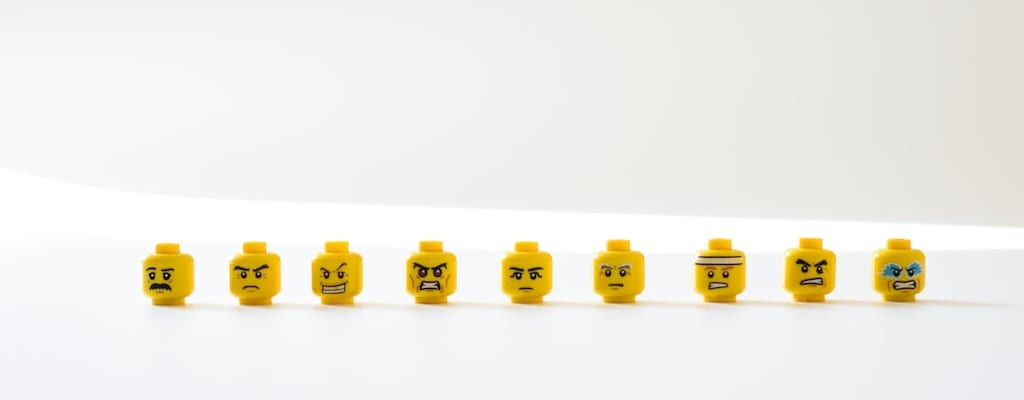that’s that on that: Idiom Meaning and Origin
What does ‘that's that on that’ mean?
"That's that on that" means that something has been decided or concluded definitively, leaving no room for further discussion or debate.

Idiom Explorer
The idiom "there you have it" is used to conclude a statement, providing a final and definitive piece of information or evidence to support a claim or argument.
The idiom "that's your lot" means that something has come to an end or there is nothing more to be expected or offered. It can be used to express that there is no more of something or that there is no further opportunity or possibility.
The idiom "that's what she said" is a humorous phrase used to draw attention to statements that can be interpreted with a sexual innuendo or double entendre. It can be seen as a form of wordplay or a way to add a humorous twist to a conversation, often used in a lighthearted or joking manner.
"That's the ticket" means that something is just right or exactly what is needed. It can also express approval or agreement with a suggestion or idea.
The idiom "that's the thing" is used to emphasize a crucial point or argument in a discussion or conversation.
The idiom 'that's that' is used to conclude a discussion or resolve a situation, implying that nothing more needs to be said or done about it. It signifies finality and closure.
The idiom "that's saying something" is used to highlight a statement that is particularly noteworthy or impressive, often because it exceeds expectations or goes against common assumptions.
The idiom "that's just me" means expressing one's personal opinion or behavior as unique and individual, often used to excuse or justify personal preferences or quirks.
The idiom "that's done it" is used to indicate that something has reached a critical or irreversible point, often referring to a negative outcome or consequence. It implies that a particular action or event has brought about a significant change that cannot be undone.
The idiom "that's all she wrote" means that something is finished or ended, often with a negative or disappointing outcome. It suggests that there is nothing else to be said or done about a situation.
Unexpected Finale
The idiom "that's that on that" is a succinct and emphatic expression commonly used in informal speech and writing to convey finality or the end of a discussion, situation, or action. Its origins and etymology are intertwined with the English language, and although tracking its precise origin proves challenging, it emerged during the Middle English period. Since then, it has become a commonly used phrase with a distinctive rhythm and emphasis.
The meaning of the idiom may vary depending on the context, but the overarching theme of finality remains constant. When someone says "that's that on that," they assert that a discussion or situation has concluded and there will be no further debate or negotiation. The power of this idiom lies in its ability to convey closure concisely. By repeating the word "that," it creates rhythmic intensity, emphasizing the finality of the statement. It is often used to assert a definitive decision or establish a boundary in a conversation.
Furthermore, the idiom's straightforwardness lends itself well to informal speech and writing, allowing the speaker or writer to make a strong point with minimal elaboration. Its directness can create a sense of authority and certainty, leaving little room for further discussion or dissent.
The idiom "that's that" emerged as part of the English language during the Middle English period. Despite evolving as an expression of finality or completion, it did not gain its current form until the 20th century when "on that" was appended to reinforce the idea. Since then, "that's that on that" has become a commonly used phrase with a distinctive rhythm and emphasis. Its concise structure and repetitive nature make it an effective linguistic device for concluding matters.
When using the idiom "that's that on that," it is important to consider its overall meaning and the context in which it is being used. The phrase signifies that a discussion or situation has concluded and there will be no further debate or negotiation. Its power lies in its ability to succinctly convey closure, creating a sense of finality and emphasis. By repeating the word "that," the idiom establishes a rhythmic intensity that reinforces the certainty of the statement.
Another related idiom is "leave it at that." This phrase is similar in meaning to "that's that on that" and is often used interchangeably. Both idiomatic expressions convey finality and the end of a discussion or situation. They assert that there will be no further debate or negotiation, and the matter is considered closed. "Leave it at that" can be seen as a slightly softer version of "that's that on that," but the underlying message remains the same.
Similarly, the idiom "that's the ticket" is related to "that's that on that" and conveys a sense of approval or agreement. It is used to express the idea that something is exactly what is needed or desired. While "that's the ticket" has a different connotation than "that's that on that," both idioms share the common thread of finality and certainty in their use. They both signify the conclusion of a matter or assert that something is exactly right or approved.
Overall, the idiom "that's that on that" is a powerful linguistic device used to convey finality and the conclusion of a discussion, situation, or action. Its concise structure, repetitive nature, and rhythmic intensity make it an effective means of emphasizing closure. With origins dating back to the Middle English period, this idiomatic phrase has stood the test of time and firmly established itself in informal speech and writing. It is closely related to idioms such as "leave it at that" and "that's the ticket," which share the common theme of finality and certainty.
Example usage
Examples of how the idiom "that's that on that" can be used in a sentence:
- "I tried to convince him to change his mind, but he was firm. That's that on that."
- "The project was canceled due to lack of funding. That's that on that."
- "I've made up my mind, and I'm not going to change it. That's that on that."
The idiom "that's that on that" is commonly used to conclude a discussion or decision by asserting that there will be no further debate or reconsideration.
More "Closure" idioms



